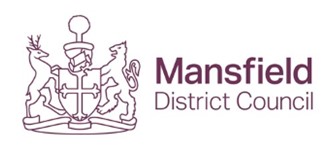As part of its response to the Coronavirus, D2N2 has begun producing data reports examining how the Coronavirus pandemic has affected the local economy.
The report has been produced in collaboration with the University of Derby, University of Nottingham, and Nottingham Trent University.
This latest report, with data for June 2020, focuses on several key areas:
- D2N2 Economic Recovery Analytics Group
- D2N2 Growth Hub Survey Findings
- Unemployment within D2N2
- Potential Unemployment
- Job Vacancy Data for D2N2
- Employment Data for D2N2
- GDP Scenarios for D2N2 Region
- Sales & Investment Data
- Education & Skills
- Midlands Engine Overview
To download a PDF version of this D2N2 Economic Recovery Report is available for download.
1. D2N2 Economic Recovery Analytical Group
The Economic Recovery Analytical Group has now met twice and is undertaking work on:
- Sectoral impact
- Impact on occupational classes
- Sourcing more granular data on unemployment than is publicly available
- Forecasting some of the potential impacts on unemployment, including a focus on the potential impact on young people about to enter the labour market for the first time.
2. D2N2 Growth Hub Survey Findings
Working alongside business representative organisations and local authorities, a consolidated survey has allowed the collection of standardised business data to inform recovery planning.
By 5 June, 687 business had responded to the D2N2 Grow the Hub Survey.
- 98% of businesses said Covid-19 was affecting their business, the overwhelming majority in a negative way
- 71% of respondents furloughed staff, and 5% made staff redundant
- 74% of respondents have experienced over 50% decline in sales.

The survey will now serve as a baseline, and a new version will be issued shortly.
3. Unemployment Within D2N2
Based on the Universal Credit and Job Seeker’s Allowance statistics, there were 81,730 claimants in May 2020, 138% up from last year (May 2019) and 25% up from last month (April 2020), compared to 140% and 27% UK average growth, respectively.
- Despite the higher growth compared to the same period last year, the number of claimants as a percentage of the working-age population (16-64) is slightly lower in D2N2 (5.9%) than nationally (6.4%).
- Derbyshire Dales, South Derbyshire, Rushcliffe, and High Peak are reporting significantly higher on year increases. However, these areas have a lower number of claimants compared to other areas.
- In terms of demographics, 30-39-year olds have seen the second-highest increase (156% growth from May 2019) after the 65+ age group, which increased by 350% in the same time frame. The latter, however, accounted for only 630 claimants in May 2020 compared to over 20,000 claimants in the 30- 39 age group.
- On year, changes for men are higher than for women at 143% and 130%. Women made up 38% of all claimants in May 2020.
4. Potential Unemployment
The OBR associates a 35% fall in output with a 6.2 percentage point increase in the unemployment rate, suggesting a potential rate of unemployment in D2N2 slightly higher than the UK average at 11%.
This GVA based projection gives us the following results for D2N2 Local Authorities.

5. Job Vacancy Data
Job postings in D2N2 have decreased by 29% compared to last May 2020.
- Administrative and Secretarial occupations and Sales & Customer Service occupations have decreased by over 50%. Professional occupations, which made up the largest proportion of vacancies, have shown the smallest decline (17%).
- Chesterfield, Nottingham, Amber Valley, Derby, and Bassetlaw local authorities have seen above-average decreases on job postings. Only Derbyshire Dales have seen an increase in postings during May 2019-20 period driven by Professional & Associate Professional occupations, Caring & Leisure, and Managerial occupations.
6. Employment Data for D2N2
The data show that D2N2 has a slightly lower exposure to employment risk than national estimates.
This could mean a reduction in employment of 9.6% by 2020 Q4.
This reduction is expected to be greater in some parts of D2N2 with Derbyshire Dales showing the largest percentage decline in employment of 11.3% by 2020 Q4.
Just under a fifth of businesses in D2N2 are in shut-down sectors.
This is in line with the national and East Midlands estimates.
Local authorities that have a high rate of employment in retail and accommodation & food services are exposed to higher employment risks based on this analysis.
Breakdown of employment and businesses in shut-down sectors across D2N2

Expected impact on D2N2 employment by sector – 2020 Q4

7. GDP Scenarios for D2N2 Region
PWC Economics have updated their model the potential effects on GDP by the sources of impact – partial sector lockdown, reduced labour supply, uncertainly effects and national policy response.
The new analysis points to an even less optimistic range of scenarios than the previous analysis.
If we apply these scenarios to D2N2 GDP, the negative effects may range from 8.6% to 14.5% of GDP after accounting for the fiscal and monetary policy responses.

8. Sales & Investment Data
According to our research, businesses expect an immediate impact on sales and investment that gradually dissipates.
Still, both measures remain below what they would have otherwise been for the next year.
There is a delayed impact on employment that reaches its lowest point in 2020 Q4 at -9.7%.
Employment is a lagging indicator compared to other measures such as investment and sales.
Firms may experience a decline in sales and reduce their investment in response to uncertainty about future demand but may hesitate to lay off workers to avoid redundancy costs and the loss of skilled workers.
These effects may have been further dampened by the CJRS furlough measures, which allow firms to claim 80% of labour costs from the government until August.
Expected impact of Covid-19 on sales/investment, average percentage impacts (May 2020)

9. Education & Skills
Intelligence gathered from engagement with General FE colleges and research with apprenticeship providers has identified the following impacts of Covid 19 on the apprenticeships and FE landscape:
- The majority (c.80-90%) apprenticeships were continuing, whether furloughed or not.
- Many providers are looking to reinforce learning through alternative funding routes where possible (e.g. Adult Education Budget) – and national requests for funding flexibilities have been made.
- Employers report that plans for future apprenticeship recruitment not being considered at this time – leading to provider uncertainty.
- Hands-on training and functional skills assessment are most heavily impacted. The Education and Skills Funding Agency (ESFA) have released v5 guidance for providers and employers which details flexibilities for the redeployment of apprentices, revised guidance on endpoint assessments and meeting requirements for the reopening of adult learning environments.
10. Overview of the Midlands (via Midlands Engine Economic Observatory)
The Institute for Fiscal Studies (IFS) has argued that the Coronavirus will exacerbate inequalities in the UK. Younger people and low earners will be economically disadvantaged because they are more likely to work in sectors that have closed and are less likely to be able to work from home.
The IFS suggested that women may be more affected than men and that children in state schools may be more affected than those in private schools. It called for a reassessment of “the value of mutual insurance, an effective welfare system and collective economic security”.
Across the Midlands Engine area, 1,195,700 people have been furloughed; this accounts for 27% of jobs (compared to 24.8% for England) or 1,876 people per 10,000 of the working-age population (compared to 1,839 per 10,000 working-age population for England).
A reading above 50 indicates an overall increase when compared to the previous month, and below 50 shows an overall decrease. The latest figures from the survey of the Purchasing Managers Index for the Business Activity Index shows a continual month on month contraction; albeit this was less severe in May versus April.
The Business Activity Index for the WM was 27.9 in May 2020 (UK = 30) compared to 10.9 in April. Similarly, the EM reported a figure of 32.6 in May 2020 compared to 13.5 in April. Compared to May 2019, the Business Activity Index was recorded at 50.7 for the West Midlands and 49.6 for the East Midlands. Across the 12 regions, the West Midlands had the 3rd lowest Business Activity Index, and the East Midlands was the 8th Lowest.
Following on from the stark claimant count figures which were seen in April 2020 due to the impact of the Coronavirus, in May 2020 there were 422,405 claimants aged 16 years and over in the Midlands Engine. This has increased by 77,715 claimants since April 2020 (+22.7% with the UK increasing by 26.6%).
There were 221,540 claimants in March 2020, meaning the claimant count has increased by 200,865 claimants. The number of claimants proportioned to the population aged 16 years and over was 2.7% (UK 2.4%) in March and has risen to 5.1% (UK 5.0%) in May.
In May 2020, there were 84,460 youth claimants (16 – 24 years old) in the Midlands Engine. This has increased by 18,515 (+28.1% with the UK increasing by 32.3%) claimants since April 2020. There were 44,195 youth claimants in March 2020, meaning the claimant count has increased by 40,265 claimants. The number of claimants proportioned to the population aged 16-24 years was 3.8% (UK 3.4%) in March and has risen to 7.2% (UK 7.1%) in May.
Retail footfall fell to 20% of its 2019 levels and remains below 40%, with the West Midlands and the North East seeing the highest falls of between 74% and 76%.
Regional analysis from the Business Impact of Coronavirus shows that 28% of trading businesses in the West Midlands and 25% in the East Midlands reported their turnover had decreased by more than 50%, compared to 26% of businesses in the UK. However, 21% of trading businesses in the West Midlands and 25% in the East Midlands reported that their turnover was unaffected (29% for the UK).
The latest Make UK report shows for the last quarter – Manufacturing output plunged to its lowest level in 30-year survey history; UK and export orders are at low levels that are comparable to the global financial crisis; Employment and investment suffer significant cutbacks; Just over 10% of companies are operating at full capacity; Industry forecast to contract by almost 10% in 2020; Employment balance dropped by 22%; Investment intentions have been flipped on their head; Prices and exports have dropped, and margins have collapsed further into negative territory as orders have disappeared cutting cash flow and profits.
Relative to the size of the Creative Industries in 2019, the West Midlands is the hardest-hit region in employment terms, with a projected 43% drop in creative jobs in 2020. While the East Midlands is the second least affected region, with a 1% fall in creative jobs.
To access the full presentation entitled: MIDLANDS ENGINE ECONOMIC IMPACT OF COVID-19 19/06/2020





























